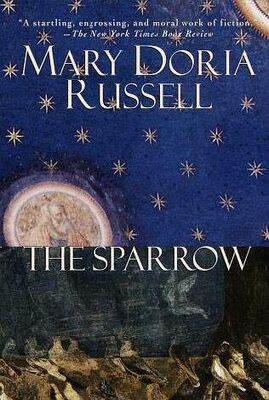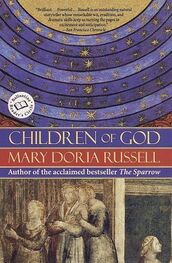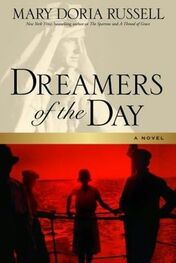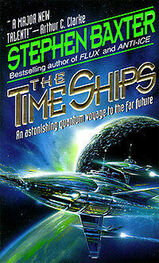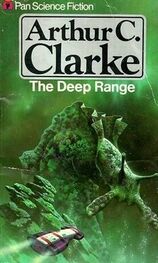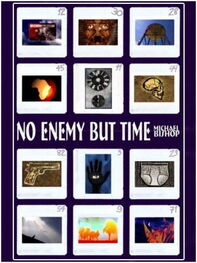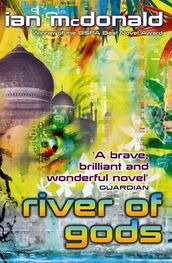"What time is it?" Ed asked, rubbing his neck.
"A little after eight," Sandoz told him. Wearing a T-shirt and a pair of baggy pants, he sat on the edge of his bed and watched Brother Edward stretch and scrub at his eyes with his pudgy hands. "Thank you. For staying with me."
Brother Edward looked at him, sizing things up. "How do you feel?"
"Okay," Emilio said simply. "I feel okay."
Emilio stood and stepped over to the window, holding the curtain aside, but couldn't see much: just the garage and a little bit of hillside. "I used to be a pretty fair middle-distance runner," he said conversationally. "I did about half a kilometer this morning. Had to walk most of it." He shrugged. "It's a start."
"It's a start," Edward Behr agreed. "You did well with the coffee, too."
"Yeah. Didn't crush the cup. Only spilled a little." He let the curtain fall. "I'm going to go get cleaned up."
"Need any help?"
"No. Thanks. I can manage."
No anger, Brother Edward noticed. He watched Emilio open the drawer and pull out clean clothes. It took a while, but he did fine. As Sandoz moved toward the door, Brother Edward spoke again. "It's not over, you know," he warned. "You don't get over something like that all at once."
Emilio stared at the floor for a while and then looked up. "Yes. I know." He stood still a few moments and then asked, "What were you, before? A nurse? A therapist?"
Edward Behr snorted and reached for the coffee. "Not even close. I was a stockbroker. I specialized in undervalued companies." He didn't expect Sandoz to understand. The generality of priests, vowed to poverty, were hopelessly ignorant of finance. "It involved recognizing the worth of things that other people discounted."
Sandoz didn't see the connection. "Were you good at it?"
"Oh, yes. I was very good at it." Brother Edward held up his cup and said, "Thanks for the coffee."
He watched Sandoz go and then, sitting very still, in silence, Edward Behr began his morning prayers.
At ten, there was a metallic rap at the Father General's door, and when he called out, "Come in," he was not surprised to see Emilio Sandoz enter the office, managing the lever without any hesitation and shutting the door behind him.
Giuliani started to stand, but Emilio said, "No, please. Sit down. I just wanted—I wanted to thank you. That couldn't have been easy for you to do."
"It was brutal," Vince Giuliani admitted. "And all I had to do was listen."
"No. You did more than that." Sandoz looked around the office, which seemed oddly empty. Unexpectedly, he gave a short laugh and his hands went to his hair, as if to run his fingers through it, an old nervous habit, now likely to tangle the joint mechanisms of the braces. He let his hands fall. "Sorry about the table. Was it valuable?"
"Priceless."
"Figures."
"Forget it." Giuliani sat back in his chair. "So. You seem better."
"Yeah. I slept well. I'll bet poor John Candotti didn't, but I did." Emilio smiled but added, "John was great. Thank you for bringing him here. And Ed. And Felipe. Even Voelker. I couldn't have—" He grimaced and turned away for a moment but came back almost immediately. "It was like—like vomiting poison, I suppose." Giuliani said nothing, and Emilio continued, with only a little irony, "Seems to me I heard somewhere that confession is good for the soul."
The corners of Giuliani's mouth twitched. "That, certainly, was the principle upon which I was operating."
Emilio went to the windows. The view was better from this office than from his room. Rank hath its privileges. "I had a dream last night," he said quietly. "I was on a road and there was no one with me. And in the dream I said, 'I don't understand but I can learn if you will teach me.' Do you suppose anyone was listening?" He didn't turn from the windows.
Without answering, Giuliani got up and went to a bookcase. Selecting a small volume with a cracked leather binding, he paged through it until he found what he wanted and held it out.
Sandoz turned and accepted the book, looking at the spine. "Aeschylus?"
Wordlessly, Giuliani pointed out the passage, and Emilio studied it a while, slowly translating the Greek in his mind. Finally, he said, " 'In our sleep, pain which cannot forget falls drop by drop upon the heart, until, in our own despair, against our will, comes wisdom through the awful grace of God.' "
"Show-off."
Sandoz laughed but, turning toward the window again, he read the passage over. Giuliani walked back to his desk and sat down, waiting for Sandoz to speak again.
"I was wondering if I could stay here a while longer," Emilio said. He had no idea he was going to ask this. He'd meant to leave. "You've been very patient. I don't mean to impose."
"Not at all."
Sandoz didn't turn back to look at the Father General, but Giuliani heard his tone change. "I don't know if I'm a priest. I don't know if—I don't know…anything at all with certainty. I don't even know if certainty is what I should want."
"Stay as long as you like."
"Thank you. You've been very patient," Emilio repeated. He moved to the door and the braced fingers closed neatly over the lever.
"Emilio," the Father General called out to him, voice pitched low, carrying easily in this quiet room. "I'm sending another group out. To Rakhat. I thought you ought to know that. We could use your help. With the languages."
Sandoz went motionless. "It's too soon, Vince. I can't think about that. It's too soon."
"Of course. I just thought you should know."
He watched Sandoz leave. Unaware of his own movement, schooled by old habit, Vincenzo Giuliani rose and went to the windows, and stood looking, for how long he had no idea, across a grassy open courtyard to a complex panorama of medieval masonry and jumbled rock, formal garden and gnarled trees: a scene of great and beautiful antiquity.
As a former academic, I feel uneasy without footnotes and a huge bibliography; even as a novelist, I believe several of the hundreds of sources I used must be named. Richard Rodriguez's Hunger of Memory taught me how scholarship boys feel. The gorgeous prose of Alain Corbin in his book The Foul and the Fragrant was the inspiration for the Reshtar's early poetry. And Molly Ivins Can't Say That, Can She? but D.W. could, so I thank Ms. Ivins for insight into Texans, turtles and armadillos. The notion of predator mimicry comes from Dougal Dixon's The New Dinosaurs, as does the snakeneck, which I found too charming an idea not to propagate. Emilio's moment of illumination in the last chapter derives from Arthur Green's theology in Seek My Face, Speak My Name. Finally, Dorothy Dunnett may consider The Sparrow one long thank you note for her splendid Lymond series.
Thanks also to my mother, Louise Dewing Doria, whose "Just do it" attitude long predates the sneaker commercial, and to my father, Richard Doria, who's always taken me seriously. Maura Kirby believed in this book long before I did. Don Russell dug me out of plot holes, designed the Stella Maris and is the source of Emilio's sense of humor. Mary Dewing taught me how to write; our fifteen-year correspondence was my apprenticeship. Mary also read every draft of this book and never failed to find a way to make each one better. Many friends helped me improve the manuscript; I thank Tomasz and Maria Rybak, Vivian Singer and Jennifer Tucker in particular for critical readings at critical times. Charles Nelson and Helene Fiore were crucial links to the world of publishing. Stanley Schmidt gave me encouragement and invaluable advice; Mary Fiore did the same and then opened doors that led to Jennifer McGlashan and to Miriam Goderich and my invincible agent, Jane Dystel. And I will always be grateful to David Rosenthal of Villard and Leona Nevler of Ivy-Fawcett for their support and faith in this book. And I fall to the feet and kiss the collective hem of the staff at Villard, who worked very hard for this book and graciously tolerated a new author's anxiety. Ray Bucko, S.J., proofed the final draft of The Sparrow and is himself proof that there are real Jesuits as extravagantly funny and plainly good as the guys I made up. He is not responsible for any remaining misrepresentation of Jesuit life—I am the author and I outrank him. Thanks also to the ladies of the Noble Branch of the Cleveland Heights Library, who brought a ton of reference works within easy reach.
Читать дальше